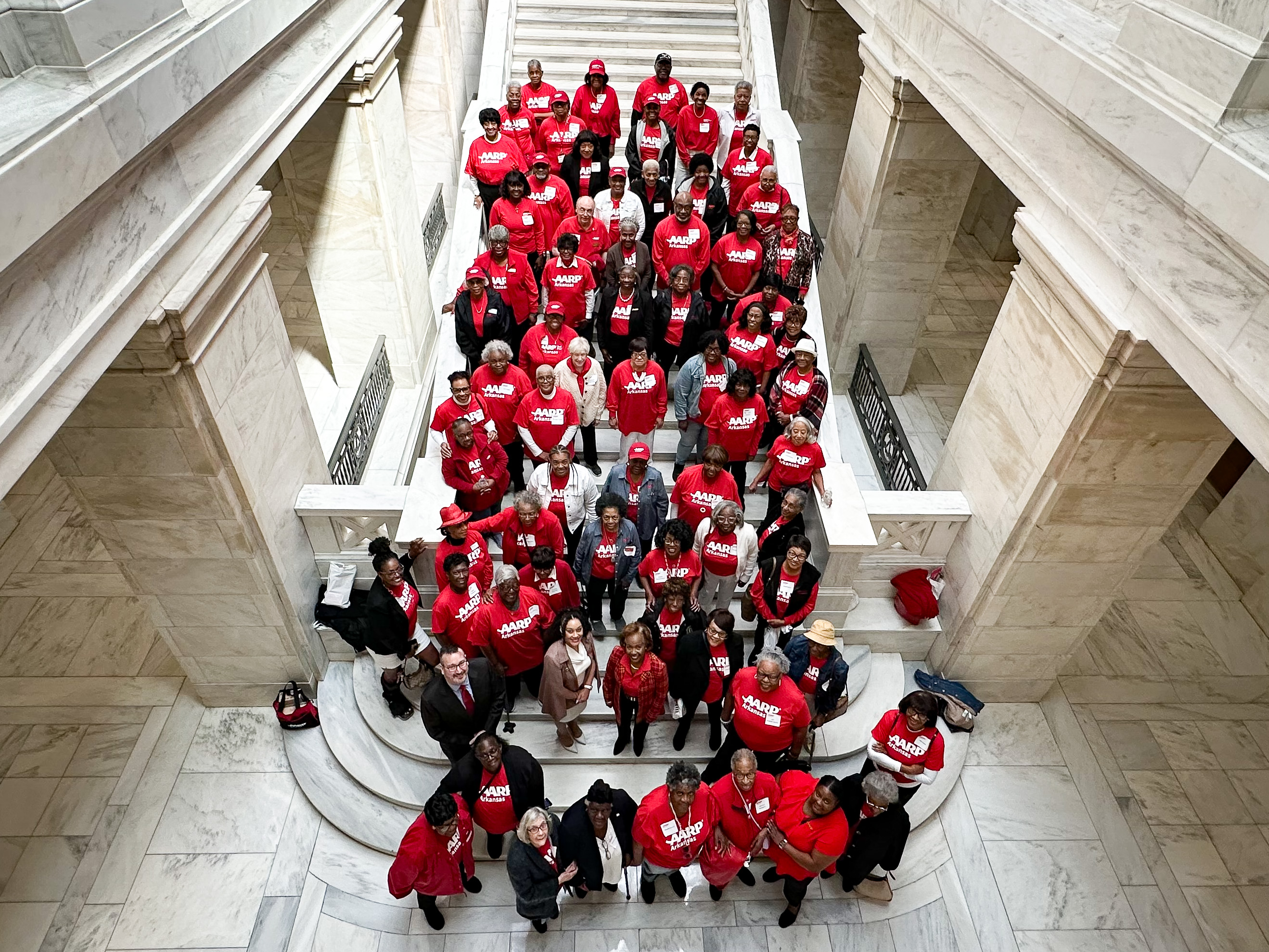AARP Hearing Center

The hallways of the Arkansas State Capitol were taken over by red shirts on Tuesday — part of AARP’s annual lobbying event to advocate for policies important to residents 50 and older.
Several dozen AARP volunteers and lawmakers attended the event, filling up the Capitol rotunda.

“Lawmakers see this, and they notice the presence,” says Chris McCoy, advocacy director for AARP Arkansas.
Among the key issues volunteers and lawmakers addressed were ways to help people save for retirement and support family caregivers. In both cases, action on the bills is being pushed to next legislative session.
One piece of legislation would create the Arkansas Save program to help workers set aside savings for retirement on a regular basis — something that research has shown helps people accumulate more over their lifetimes. Known as a “work and save” program, it’s been implemented or approved in some form in 20 states. It’s targeted at workers whose employers don’t provide such an option at work.
In Arkansas, the legislation was introduced by state Rep. Les Warren (R-Hot Springs), who at the Capitol event talked up the benefits of long-term savings. “People always think, ‘Oh, it’ll take forever,’ ” he said. “But forever comes one day — and you’re actually amazed at how much you’ve been able to save and how that money turns over and over and over.”
McCoy says the legislation is being sent to a study committee to hash out various details, in anticipation of reintroducing it in 2027.
Tax credit aims to help ease caregiver expenses
Volunteers also heard from state Rep. Ashley Hudson (D-Little Rock) about her bill to establish a state income tax credit to help offset caregiving expenses, such as home modifications, medical equipment and home care aides.
If passed, the tax credit would be available to family caregivers with an adjusted gross income of less than $50,000, covering expenses directly related to caregiving. Eligible taxpayers could receive up to $2,000 annually — or up to $3,000 if the family member is a veteran or has a diagnosis of dementia.
McCoy says that for caregivers, passing such a bill would “put money directly back into their pocket.”
Family caregivers are often working adults balancing the demands of a job, family and caring for a loved one. The emotional stress, physical exhaustion and financial strain can make the role overwhelming.
Proponents say caregivers help save taxpayers money by allowing people to stay in their homes and communities — and out of more costly institutions — as they age.
An AARP report on family caregivers found that in Arkansas in 2021, 420,000 family caregivers provided care valued at about $5.8 billion.
The idea of caregiver tax credits is gaining traction nationwide. Oklahoma became the first state to pass a comprehensive caregiver tax credit in 2023, followed by Nebraska in 2024. Other states are considering similar measures.
In Arkansas, Hudson says it doesn’t appear the bill will make it through this time. She says she plans to reintroduce it in 2027. “Hopefully, it’ll fare better,” she says.
See speeches from the event here.
Stacey Shepard, a California-based journalist, writes about health care, the environment and other issues.
- Retirement
- How Auto IRAs Are Helping More Workers Save for Retirement
- 5 Surprises That Could Derail Your Retirement Plans































































